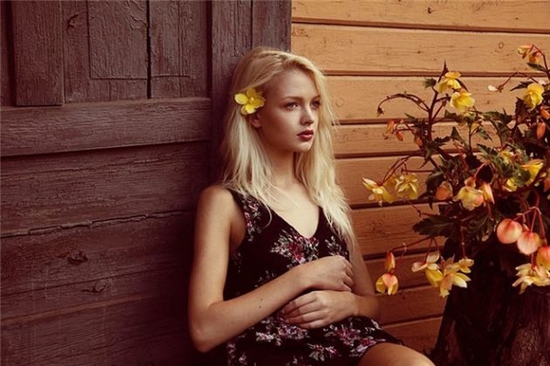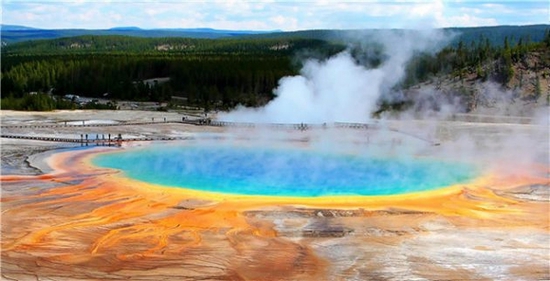动物庄园读后感|动物庄园 Animal Farm 第十章
YEARS passed. The seasons came and went, the short animal lives fled by. A time came when there was no one who remembered the old days before the Rebellion, except Clover, Benjamin, Moses the raven, and a number of the pigs.
Muriel was dead; Bluebell, Jessie, and Pincher were dead. Jones too was dead-he had died in an inebriates" home in another part of the country. Snowball was forgotten. Boxer was forgotten, except by the few who had known him. Clover was an old stout mare now, stiff in the joints and with a tendency to rheumy eyes. She was two years past the retiring age, but in fact no animal had ever actually retired. The talk of setting aside a corner of the pasture for superannuated animals had long since been dropped. Napoleon was now a mature boar of twenty-four stone. Squealer was so fat that he could with difficulty see out of his eyes. Only old Benjamin was much the same as ever, except for being a little greyer about the muzzle, and, since Boxer"s death, more morose and taciturn than ever.
There were many more creatures on the farm now, though the increase was not so great as had been expected in earlier years. Many animals had been born to whom the Rebellion was only a dim tradition, passed on by word of mouth, and others had been bought who had never heard mention of such a thing before their arrival. The farm possessed three horses now besides Clover. They were fine upstanding beasts, willing workers and good comrades, but very stupid. None of them proved able to learn the alphabet beyond the letter B. They accepted everything that they were told about the Rebellion and the principles of Animalism, especially from Clover, for whom they had an almost filial respect; but it was doubtful whether they understood very much of it.
The farm was more prosperous now, and better organised: it had even been enlarged by two fields which had been bought from Mr. Pilkington. The windmill had been successfully completed at last, and the farm possessed a threshing machine and a hay elevator of its own, and various new buildings had been added to it. Whymper had bought himself a dogcart. The windmill, however, had not after all been used for generating electrical power. It was used for milling corn, and brought in a handsome money profit. The animals were hard at work building yet another windmill; when that one was finished, so it was said, the dynamos would be installed. But the luxuries of which Snowball had once taught the animals to dream, the stalls with electric light and hot and cold water, and the three-day week, were no longer talked about. Napoleon had denounced such ideas as contrary to the spirit of Animalism. The truest happiness, he said, lay in working hard and living frugally.
Somehow it seemed as though the farm had grown richer without making the animals themselves any richer-except, of course, for the pigs and the dogs. Perhaps this was partly because there were so many pigs and so many dogs. It was not that these creatures did not work, after their fashion. There was, as Squealer was never tired of explaining, endless work in the supervision and organisation of the farm. Much of this work was of a kind that the other animals were too ignorant to understand. For example, Squealer told them that the pigs had to expend enormous labours every day upon mysterious things called "files," "reports," "minutes," and "memoranda." These were large sheets of paper which had to be closely covered with writing, and as soon as they were so covered, they were burnt in the furnace. This was of the highest importance for the welfare of the farm, Squealer said. But still, neither pigs nor dogs produced any food by their own labour; and there were very many of them, and their appetites were always good.
As for the others, their life, so far as they knew, was as it had always been. They were generally hungry, they slept on straw, they drank from the pool, they laboured in the fields; in winter they were troubled by the cold, and in summer by the flies. Sometimes the older ones among them racked their dim memories and tried to determine whether in the early days of the Rebellion, when Jones"s expulsion was still recent, things had been better or worse than now. They could not remember. There was nothing with which they could compare their present lives: they had nothing to go upon except Squealer"s lists of figures, which invariably demonstrated that everything was getting better and better. The animals found the problem insoluble; in any case, they had little time for speculating on such things now. Only old Benjamin professed to remember every detail of his long life and to know that things never had been, nor ever could be much better or much worse-hunger, hardship, and disappointment being, so he said, the unalterable law of life.
And yet the animals never gave up hope. More, they never lost, even for an instant, their sense of honour and privilege in being members of Animal Farm. They were still the only farm in the whole county-in all England!-owned and operated by animals. Not one of them, not even the youngest, not even the newcomers who had been brought from farms ten or twenty miles away, ever ceased to marvel at that. And when they heard the gun booming and saw the green flag fluttering at the masthead, their hearts swelled with imperishable pride, and the talk turned always towards the old heroic days, the expulsion of Jones, the writing of the Seven Commandments, the great battles in which the human invaders had been defeated. None of the old dreams had been abandoned. The Republic of the Animals which Major had foretold, when the green fields of England should be untrodden by human feet, was still believed in. Some day it was coming: it might not be soon, it might not be with in the lifetime of any animal now living, but still it was coming. Even the tune of Beasts of England was perhaps hummed secretly here and there: at any rate, it was a fact that every animal on the farm knew it, though no one would have dared to sing it aloud. It might be that their lives were hard and that not all of their hopes had been fulfilled; but they were conscious that they were not as other animals. If they went hungry, it was not from feeding tyrannical human beings; if they worked hard, at least they worked for themselves. No creature among them went upon two legs. No creature called any other creature "Master." All animals were equal.
One day in early summer Squealer ordered the sheep to follow him, and led them out to a piece of waste ground at the other end of the farm, which had become overgrown with birch saplings. The sheep spent the whole day there browsing at the leaves under Squealer"s supervision. In the evening he returned to the farmhouse himself, but, as it was warm weather, told the sheep to stay where they were. It ended by their remaining there for a whole week, during which time the other animals saw nothing of them. Squealer was with them for the greater part of every day. He was, he said, teaching them to sing a new song, for which privacy was needed.
It was just after the sheep had returned, on a pleasant evening when the animals had finished work and were making their way back to the farm buildings, that the terrified neighing of a horse sounded from the yard. Startled, the animals stopped in their tracks. It was Clover"s voice. She neighed again, and all the animals broke into a gallop and rushed into the yard. Then they saw what Clover had seen.
It was a pig walking on his hind legs.
Yes, it was Squealer. A little awkwardly, as though not quite used to supporting his considerable bulk in that position, but with perfect balance, he was strolling across the yard. And a moment later, out from the door of the farmhouse came a long file of pigs, all walking on their hind legs. Some did it better than others, one or two were even a trifle unsteady and looked as though they would have liked the support of a stick, but every one of them made his way right round the yard successfully. And finally there was a tremendous baying of dogs and a shrill crowing from the black cockerel, and out came Napoleon himself, majestically upright, casting haughty glances from side to side, and with his dogs gambolling round him.
He carried a whip in his trotter.
There was a deadly silence. Amazed, terrified, huddling together, the animals watched the long line of pigs march slowly round the yard. It was as though the world had turned upside-down. Then there came a moment when the first shock had worn off and when, in spite of everything-in spite of their terror of the dogs, and of the habit, developed through long years, of never complaining, never criticising, no matter what happened-they might have uttered some word of protest. But just at that moment, as though at a signal, all the sheep burst out into a tremendous bleating of-
"Four legs good, two legs better! Four legs good, two legs better! Four legs good, two legs better!"
It went on for five minutes without stopping. And by the time the sheep had quieted down, the chance to utter any protest had passed, for the pigs had marched back into the farmhouse.
Benjamin felt a nose nuzzling at his shoulder. He looked round. It was Clover. Her old eyes looked dimmer than ever. Without saying anything, she tugged gently at his mane and led him round to the end of the big barn, where the Seven Commandments were written. For a minute or two they stood gazing at the tatted wall with its white lettering.
"My sight is failing," she said finally. "Even when I was young I could not have read what was written there. But it appears to me that that wall looks different. Are the Seven Commandments the same as they used to be, Benjamin?"
For once Benjamin consented to break his rule, and he read out to her what was written on the wall. There was nothing there now except a single Commandment. It ran:
ALL ANIMALS ARE EQUAL
BUT SOME ANIMALS ARE MORE EQUAL THAN OTHERS
After that it did not seem strange when next day the pigs who were supervising the work of the farm all carried whips in their trotters. It did not seem strange to learn that the pigs had bought themselves a wireless set, were arranging to install a telephone, and had taken out subscriptions to John Bull, TitBits, and the Daily Mirror. It did not seem strange when Napoleon was seen strolling in the farmhouse garden with a pipe in his mouth-no, not even when the pigs took Mr. Jones"s clothes out of the wardrobes and put them on, Napoleon himself appearing in a black coat, ratcatcher breeches, and leather leggings, while his favourite sow appeared in the watered silk dress which Mrs. Jones had been used to wear on Sundays.
A week later, in the afternoon, a number of dogcarts drove up to the farm. A deputation of neighbouring farmers had been invited to make a tour of inspection. They were shown all over the farm, and expressed great admiration for everything they saw, especially the windmill. The animals were weeding the turnip field. They worked diligently hardly raising their faces from the ground, and not knowing whether to be more frightened of the pigs or of the human visitors.
That evening loud laughter and bursts of singing came from the farmhouse. And suddenly, at the sound of the mingled voices, the animals were stricken with curiosity. What could be happening in there, now that for the first time animals and human beings were meeting on terms of equality? With one accord they began to creep as quietly as possible into the farmhouse garden.
At the gate they paused, half frightened to go on but Clover led the way in. They tiptoed up to the house, and such animals as were tall enough peered in at the dining-room window. There, round the long table, sat half a dozen farmers and half a dozen of the more eminent pigs, Napoleon himself occupying the seat of honour at the head of the table. The pigs appeared completely at ease in their chairs The company had been enjoying a game of cards but had broken off for the moment, evidently in order to drink a toast. A large jug was circulating, and the mugs were being refilled with beer. No one noticed the wondering faces of the animals that gazed in at the window.
Mr. Pilkington, of Foxwood, had stood up, his mug in his hand. In a moment, he said, he would ask the present company to drink a toast. But before doing so, there were a few words that he felt it incumbent upon him to say.
It was a source of great satisfaction to him, he said-and, he was sure, to all others present-to feel that a long period of mistrust and misunderstanding had now come to an end. There had been a time-not that he, or any of the present company, had shared such sentiments-but there had been a time when the respected proprietors of Animal Farm had been regarded, he would not say with hostility, but perhaps with a certain measure of misgiving, by their human neighbours. Unfortunate incidents had occurred, mistaken ideas had been current. It had been felt that the existence of a farm owned and operated by pigs was somehow abnormal and was liable to have an unsettling effect in the neighbourhood. Too many farmers had assumed, without due enquiry, that on such a farm a spirit of licence and indiscipline would prevail. They had been nervous about the effects upon their own animals, or even upon their human employees. But all such doubts were now dispelled. Today he and his friends had visited Animal Farm and inspected every inch of it with their own eyes, and what did they find? Not only the most up-to-date methods, but a discipline and an orderliness which should be an example to all farmers everywhere. He believed that he was right in saying that the lower animals on Animal Farm did more work and received less food than any animals in the county. Indeed, he and his fellow-visitors today had observed many features which they intended to introduce on their own farms immediately.
He would end his remarks, he said, by emphasising once again the friendly feelings that subsisted, and ought to subsist, between Animal Farm and its neighbours. Between pigs and human beings there was not, and there need not be, any clash of interests whatever. Their struggles and their difficulties were one. Was not the labour problem the same everywhere? Here it became apparent that Mr. Pilkington was about to spring some carefully prepared witticism on the company, but for a moment he was too overcome by amusement to be able to utter it. After much choking, during which his various chins turned purple, he managed to get it out: "If you have your lower animals to contend with," he said, "we have our lower classes!" This bon mot set the table in a roar; and Mr. Pilkington once again congratulated the pigs on the low rations, the long working hours, and the general absence of pampering which he had observed on Animal Farm.
And now, he said finally, he would ask the company to rise to their feet and make certain that their glasses were full. "Gentlemen," concluded Mr. Pilkington, "gentlemen, I give you a toast: To the prosperity of Animal Farm!"
There was enthusiastic cheering and stamping of feet. Napoleon was so gratified that he left his place and came round the table to clink his mug against Mr. Pilkington"s before emptying it. When the cheering had died down, Napoleon, who had remained on his feet, intimated that he too had a few words to say.
Like all of Napoleon"s speeches, it was short and to the point. He too, he said, was happy that the period of misunderstanding was at an end. For a long time there had been rumours-circulated, he had reason to think, by some malignant enemy-that there was something subversive and even revolutionary in the outlook of himself and his colleagues. They had been credited with attempting to stir up rebellion among the animals on neighbouring farms. Nothing could be further from the truth! Their sole wish, now and in the past, was to live at peace and in normal business relations with their neighbours. This farm which he had the honour to control, he added, was a co-operative enterprise. The title-deeds, which were in his own possession, were owned by the pigs jointly.
He did not believe, he said, that any of the old suspicions still lingered, but certain changes had been made recently in the routine of the farm which should have the effect of promoting confidence stiff further. Hitherto the animals on the farm had had a rather foolish custom of addressing one another as "Comrade." This was to be suppressed. There had also been a very strange custom, whose origin was unknown, of marching every Sunday morning past a boar"s skull which was nailed to a post in the garden. This, too, would be suppressed, and the skull had already been buried. His visitors might have observed, too, the green flag which flew from the masthead. If so, they would perhaps have noted that the white hoof and horn with which it had previously been marked had now been removed. It would be a plain green flag from now onwards.
He had only one criticism, he said, to make of Mr. Pilkington"s excellent and neighbourly speech. Mr. Pilkington had referred throughout to "Animal Farm." He could not of course know-for he, Napoleon, was only now for the first time announcing it-that the name "Animal Farm" had been abolished. Henceforward the farm was to be known as "The Manor Farm"-which, he believed, was its correct and original name.
"Gentlemen," concluded Napoleon, "I will give you the same toast as before, but in a different form. Fill your glasses to the brim. Gentlemen, here is my toast: To the prosperity of The Manor Farm! "
There was the same hearty cheering as before, and the mugs were emptied to the dregs. But as the animals outside gazed at the scene, it seemed to them that some strange thing was happening. What was it that had altered in the faces of the pigs? Clover"s old dim eyes flitted from one face to another. Some of them had five chins, some had four, some had three. But what was it that seemed to be melting and changing? Then, the applause having come to an end, the company took up their cards and continued the game that had been interrupted, and the animals crept silently away.
But they had not gone twenty yards when they stopped short. An uproar of voices was coming from the farmhouse. They rushed back and looked through the window again. Yes, a violent quarrel was in progress. There were shoutings, bangings on the table, sharp suspicious glances, furious denials. The source of the trouble appeared to be that Napoleon and Mr. Pilkington had each played an ace of spades simultaneously.
Twelve voices were shouting in anger, and they were all alike. No question, now, what had happened to the faces of the pigs. The creatures outside looked from pig to man, and from man to pig, and from pig to man again; but already it was impossible to say which was which.
[NextPage]
春去秋来,年复一年。随着岁月的流逝,寿命较短的动物都已相继死去。眼下,除了克拉弗、本杰明、乌鸦摩西和一些猪之外,已经没有一个能记得起义前的日子了。
穆丽尔死了,布鲁拜尔、杰西、平彻尔都死了,琼斯也死了,他死在国内其他一个地方的一个酒鬼家里。斯诺鲍被忘掉了。鲍克瑟也被忘掉了,所不同的是,唯有几个本来就相识的动物还记得。克拉弗如今也老了,她身体肥胖,关节僵硬,眼里总带着一团眼屎。按退休年龄来说,她的年龄已超过两年了,但实际上,从未有一个动物真正退休。拨出大牧场一角给退休动物享用的话题也早就搁到一边了。如今的拿破仑已是一头完全成熟的雄猪,体重三百多磅。斯奎拉胖得连睁眼往外看都似乎感到困难。只有老本杰明,几乎和过去一个样,就是鼻子和嘴周围有点发灰,再有一点,自从鲍克瑟死去后,他比以前更加孤僻和沉默寡言。
现在,庄园里的牲口比以前多得多了,尽管增长的数目不象早些年所预见的那么大。很多动物生在庄园,还有一些则来自别的地方。对于那些出生在庄园的动物来说,起义只不过是一个朦朦胧胧的口头上的传说而已;而对那些来自外乡的动物来说,他们在来到庄园之前,还从未听说过起义的事。现在的庄园,除了克拉弗之外,另外还有三匹马,他们都是好同志,都很了不起,也都十分温顺,可惜反应都很慢。看起来,他们中间没有一个能学会字母表上“B”以后的字母。对于有关起义和动物主义原则的事,凡是他们能听到的,他们都毫无保留地全盘接受,尤其是对出自克拉弗之口的更是如此。他们对克拉弗的尊敬,已近乎于孝顺。但是,他们究竟是不是能弄通这些道理,仍然值得怀疑。
现在的庄园更是欣欣向荣,也更是井然有序了。庄园里增加了两块地,这两块地是从皮尔金顿先生那里买来的。风车最终还是成功地建成了,庄园里也有了自己的一台打谷机及草料升降机。另外,还加盖了许多种类不一的新建筑。温普尔也为自己买了一辆双轮单驾马车。不过,风车最终没有用来发电,而是用来磨谷子啦,并且为庄园创收了数目可观的利润。如今,动物们又为建造另一座风车而辛勤劳作,据说,等这一座建成了,就要安装上发电机。但是,当年谈论风车时,斯诺鲍引导动物们所想像的那种享受不尽的舒适,那种带电灯和冷热水的窝棚,那种每周三天工作制,如今不再谈论了。拿破仑早就斥责说,这些想法是与动物主义的精神背道而驰的。他说,最纯粹的幸福在于工作勤奋和生活俭朴。
不知道为什么,反正看上去,庄园似乎已经变得富裕了,但动物们自己一点没有变富,当然猪和狗要排除在外。也许,其中的部分原因是由于猪和狗都多吧。处在他们这一等级的动物,都是用他们自己的方式从事劳动。正像斯奎拉乐于解释的那样,在庄园的监督和组织工作中,有很多没完没了的事,在这类事情中,有大量工作是其它动物由于无知而无法理解的。例如,斯奎拉告诉他们说,猪每天要耗费大量的精力,用来处理所谓“文件”、“报告”、“会议记录”和“备忘录”等等神秘的事宜。这类文件数量很大,还必须仔细填写,而且一旦填写完毕,又得把它们在炉子里烧掉。斯奎拉说,这是为了庄园的幸福所做的最重要的工作。但是至今为止,无论是猪还是狗,都还没有亲自生产过一粒粮食,而他们仍然为数众多,他们的食欲还总是十分旺盛。
至于其它动物,迄今就他们所知,他们的生活还是一如既往。他们普遍都在挨饿,睡的是草垫,喝的是池塘里的水,干的是田间里的活,冬天被寒冷所困,夏天又换成了苍蝇。有时,他们中间的年长者绞尽脑汁,竭尽全力从那些淡漠的印象中搜索着回忆的线索,他们试图以此来推定起义后的早期,刚赶走琼斯那会,情况是比现在好呢还是糟,但他们都记不得了。没有一件事情可以用来和现在的生活做比较,除了斯奎拉的一系列数字以外,他们没有任何凭据用来比较,而斯奎拉的数字总是千篇一律地表明,所有的事正变得越来越好。动物们发现这个问题解释不清,不管怎么说,他们现在很少有时间去思索这类事情。唯有老本杰明与众不同,他自称对自己那漫长的一生中的每个细节都记忆犹新,还说他认识到事物过去没有,将来也不会有什么更好或更糟之分。因此他说,饥饿、艰难、失望的现实,是生活不可改变的规律。
不过,动物们仍然没有放弃希望。确切地说,他们身为动物庄园的一员,从来没有失去自己的荣誉感和优越感,哪怕是一瞬间也没有过。他们的庄园依然是整个国家——所有英伦三岛中——唯一的归动物所有、并由动物管理的庄园。他们中间的成员,就连最年轻的,甚至还有那些来自十英里或二十英里以外庄园的新成员,每每想到这一点,都无不感到惊喜交加。当他们听到鸣枪,看到旗杆上的绿旗飘扬,他们内心就充满了不朽的自豪,话题一转,也就时常提起那史诗般的过去,以及驱除琼斯、刻写“七诫”、击退人类来犯者的伟大战斗等等。那些旧日的梦想一个也没有丢弃。想当年麦哲预言过的“动物共和国”,和那个英格兰的绿色田野上不再有人类足迹践踏的时代,至今依然是他们信仰所在。他们依然相信:总有一天,那个时代会到来,也许它不会马上到来,也许它不会在任何现在健在的动物的有生之年到来,但它终究要到来。而且至今,说不定就连“英格兰兽”的曲子还在被到处偷偷得哼唱着,反正事实上,庄园里的每个动物都知道它,尽管谁也不敢放声大唱。也许,他们生活艰难;也许,他们的希望并没有全部实现,但他们很清楚,他们和别的动物不一样。 如果他们还没有吃饱,那么也不是因为把食物拿去喂了暴虐的人类;如果他们干活苦了,那么至少他们是在为自己辛劳。在他们中间,谁也不用两条腿走路,谁也不把谁称做“老爷”,所有动物一律平等。
初夏的一天,斯奎拉让羊跟着他出去,他把他们领到庄园的另一头,那地方是一块长满桦树苗的荒地。在斯奎拉的监督下,羊在那里吃了整整一天树叶子,到了晚上,斯奎拉告诉羊说,既然天气暖和了,他们就呆在那儿算了。然后,他自己返回了庄主院。羊在那里呆了整整一个星期。在这期间,别的动物连他们的一丝影子也没见着。斯奎拉每天倒是耗费大量时间和他们泡在一起。他解释说,他正在给他们教唱一首新歌,因此十分需要清静。
那是一个爽朗的傍晚,羊回来了。当时,动物们才刚刚收工,正走在回窝棚的路上。突然,从大院里传来了一声马的悲鸣,动物们吓了一跳,全都立即停下脚步。是克拉弗的声音,她又嘶叫起来。于是,所有的动物全都奔跑着冲进了大院。这一下,他们看到了克拉弗看到的情景。
是一头猪在用后腿走路。
是的,是斯奎拉。他还有点笨拙好象还不大习惯用这种姿势支撑他那巨大的身体,但他却能以熟练的平衡,在院子里散步了。不大一会,从庄主院门里又走出一长队猪,都用后腿在行走。他们走到好坏不一,有一两头猪还有点不稳当,看上去好像他们本来更适于找一根棍子支撑着。不过,每头猪都绕着院子走得相当成功。最后,在一阵非常响亮的狗叫声和那只黑公鸡尖细的啼叫声中,拿破仑亲自走出来了,他大模大样地直立着,眼睛四下里轻慢地瞥了一下。他的狗则活蹦乱跳地簇拥再他的周围。
他蹄子中捏着一根鞭子。
一阵死一般的寂静。惊讶、恐惧的动物们挤在一堆,看着那一长溜猪慢慢地绕着院子行走。仿佛这世界已经完全颠倒了。接着,当他们从这场震惊中缓过一点劲的时候,有那么一瞬间,他们顾不上顾虑任何事——顾不上他们对狗的害怕,顾不上他们多少年来养成的,无论发生什么事,他们也从来不抱怨、从批评的习惯——他们马上要大声抗议了,但就在这时,象是被一个信号激了一下一样,所有的羊爆发出一阵巨大的咩咩声——
“四条腿好,两条腿更好!四条腿好,两条腿更好!四条腿好,两条腿更好!”
喊叫声不间歇地持续了五分钟。等羊安静下来后,已经错过了任何抗议的机会了,因为猪已列队走回庄主院。
本杰明感觉到有一个鼻子在他肩上磨蹭。回头一看,是克拉弗。只见她那一双衰劳的眼睛比以往更加灰暗。她没说一句话,轻轻地拽他的鬃毛,领着他转到大谷仓那一头,那儿是写着“七诫”的地方。他们站在那里注视着有白色字体的柏油墙,足有一两分钟。
“我的眼睛不行了”,他终于说话了,“就是年轻时,我也认不得那上面所写的东西。可是今天,怎么我看这面墙不同以前了。‘七诫’还是过去那样吗?本杰明?”
只有这一次,本杰明答应破个例,他把墙上写的东西念给她听,而今那上面已经没有别的什么了,只有一条诫律,它是这样写的:
所有动物一例平等
但有些动物比其他动物
更加平等
从此以后,似乎不再有什么可稀奇的了:第二天所有的猪在庄园监督干活时蹄子上都捏着一根鞭子,算不得稀奇;猪给他们自己买一台无线电收音机,并正在准备安装一部电话,算不得稀奇;得知他们已经订阅了《约翰·牛报》、《珍闻报》及《每日镜报》,算不得稀奇;看到拿破仑在庄主院花园里散步时,嘴里含着一根烟斗,也算不得稀奇。是的,不必再大惊小怪了。哪怕猪把琼斯先生的衣服从衣柜里拿出来穿在身上也没有什么。如今,拿破仑已经亲自穿上了一件黑外套和一条特制的马裤,还绑上了皮绑腿,同时,他心爱的母猪则穿上一件波纹绸裙子,那裙子是琼斯夫人过去常在星期天穿的。
一周后的一天下午,一位两轮单驾马车驶进庄园。一个由邻近庄园主组成的代表团,已接受邀请来此进行考查观光。他们参观了整个庄园,并对他们看到的每件事都赞不绝口,尤其是对风车。那时,动物们正在萝卜地里除草,他们干得细心认真,很少扬起脸,搞不清他们是对猪更害怕呢,还是对来参观的人更害怕。
那天晚上,从庄主院里传来一阵阵哄笑声和歌声。动物们突然被这混杂的声音吸引住了。他们感到好奇的是,既然这是动物和人第一次在平等关系下济济一堂,那么在那里会发生什么事呢?于是他们便不约而同地,尽量不出一点声音地往庄主院的花园里爬去。
到了门口,他们又停住了,大概是因为害怕而不敢再往前走,但克拉弗带头进去了,他们踮着蹄子,走到房子跟前,那些个头很高的动物就从餐厅的窗户上往里面看。屋子里面,在那张长长的桌子周围,坐着六个庄园主和六头最有名望的猪,拿破仑自己坐在桌子上首的东道主席位上,猪在椅子上显出一副舒适自在的样子。宾主一直都在津津有味地玩扑克牌,但是在中间停了一会,显然是为了准备干杯。有一个很大的罐子在他们中间传来传去,杯子里又添满了啤酒。他们都没注意到窗户上有很多诧异的面孔正在凝视着里面。
福克斯伍德庄园的皮尔金顿先生举着杯子站了起来。他说道,稍等片刻,他要请在场的诸位干杯。在此之前,他感到有几句话得先讲一下。
他说,他相信,他还有其他在场的各位都感到十分喜悦的是,持续已久的猜疑和误解时代已经结束了。曾有这样一个时期,无论是他自己,还是在座的诸君,都没有今天这种感受,当时,可敬的动物庄园的所有者,曾受到他们的人类邻居的关注,他情愿说这关注多半是出于一定程度上的焦虑,而不是带着敌意。不幸的事件曾发生过,错误的观念也曾流行过。一个由猪所有并由猪管理经营的庄园也曾让人觉得有些名不正言不顺,而且有容易给邻近庄园带来扰乱因素的可能。相当多的庄园主没有做适当的调查就信口推断说,在这样的庄园里,肯定会有一种放荡不羁的歪风邪气在到处蔓延。他们担心这种状况会影响到他们自己的动物,甚至影响他们的雇员。但现在,所有这种怀疑都已烟消云散了。今天,他和他的朋友们拜访了动物庄园,用他们自己的眼睛观察了庄园的每一个角落。他们发现了什么呢?这里不仅有最先进的方法,而且纪律严明,有条不紊,这应该是各地庄园主学习的榜样。他相信,他有把握说,动物庄园的下级动物,比全国任何动物干的活都多,吃的饭都少。的确,他和他的代表团成员今天看到了很多有特色之处,他们准备立即把这些东西引进到他们各自的庄园中去。
他说,他愿在结束发言的时候,再次重申动物庄园及其邻居之间已经建立的和应该建立的友好感情。在猪和人之间不存在,也不应该存在任何意义上的利害冲突。他们的奋斗目标和遇到的困难是一致的。劳工问题不是到处都相同嘛?讲到这里,显然,皮尔金顿先生想突然讲出一句经过仔细琢磨的妙语,但他好一会儿乐不可支,讲不出话来,他竭力抑制住,下巴都憋得发紫了,最后才蹦出一句:“如果你们有你们的下层动物在作对,”他说,“我们有我们的下层阶级!”这一句意味隽永的话引起一阵哄堂大笑。皮尔金顿先生再次为他在动物庄园看到的饲料供给少、劳动时间长,普遍没有娇生惯养的现象等等向猪表示祝贺。
他最后说道,到此为止,他要请各位站起来,实实在在地斟满酒杯。“先生们,”皮尔金顿先生在结束时说,“先生们,我敬你们一杯:为动物庄园的繁荣昌盛干杯!”
一片热烈的喝彩声和跺脚声响起。拿破仑顿时心花怒放,他离开座位,绕着桌子走向皮尔金顿先生,和他碰了杯便喝干了,喝采声一静下来,依然靠后腿站立着的拿破仑示意,他也有几句话要讲。
这个讲话就象拿破仑所有的演讲一样,简明扼要而又一针见血。他说,他也为那个误解的时代的结束而感到高兴。曾经有很长一个时期,流传着这样的谣言,他有理由认为,这些谣言是一些居心叵测的仇敌散布的,说在他和他的同僚的观念中,有一种主张颠覆、甚至是从根本上属于破坏性的东西。他们一直被看作是企图煽动邻近庄园的动物造反。但是,事实是任何谣言都掩盖不了的。他们唯一的愿望,无论是在过去还是现在,都是与他们的邻居和平共处,保持正常的贸易关系。他补充说,他有幸掌管的这个庄园是一家合营企业。他自己手中的那张地契,归猪共同所有。
他说道,他相信任何旧的猜疑不会继续存在下去了。而最近对庄园的惯例又作了一些修正,会进一步增强这一信心。长期以来,庄园里的动物还有一个颇为愚蠢的习惯,那就是互相以“同志”相称。这要取消。还有一个怪僻,搞不清是怎么来的,就是在每个星期天早上,要列队走过花园里一个钉在木桩上的雄猪头盖骨。这个也要取消。头盖骨已经埋了。他的来访者也许已经看到那面旗杆上飘扬着的绿旗。果然如此的话,他们或许已经注意到,过去旗面上画着的白色蹄掌和犄角现在没有了。从今以后那面旗将是全绿的旗。
他说,皮尔金顿先生的精采而友好的演讲,他只有一点要作一补充修正。皮尔金顿先生一直提到“动物庄园”,他当然不知道了,因为就连他拿破仑也只是第一次宣告,“动物庄园”这个名字作废了。今后,庄园的名字将是“曼纳庄园”,他相信,这个名字才是它的真名和原名。
“先生们,“他总结说,“我将给你们以同样的祝辞,但要以不同的形式,请满上这一杯。先生们,这就是我的祝辞:为曼纳庄园的繁荣昌盛干杯!”
一阵同样热烈而真诚的喝采声响起,酒也一饮而尽。但当外面的动物们目不转睛地看着这一情景时,他们似乎看到了,有一些怪事正在发生。猪的面孔上发生了什么变化呢?克拉弗那一双衰老昏花的眼睛扫过一个接一个面孔。他们有的有五个下巴,有的有四个,有的有三个,但是有什么东西似乎正在融化消失,正在发生变化。接着,热烈的掌声结束了,他们又拿起扑克牌,继续刚才中断的游戏,外面的动物悄悄地离开了。
但他们还没有走出二十码,又突然停住了。庄主院传出一阵吵闹声。他们跑回去,又一次透过窗子往里面看。是的,里面正在大吵大闹。那情景,既有大喊大叫的,也有捶打桌子的;一边是疑神疑鬼的锐利的目光,另一边却在咆哮着矢口否认。动乱的原因好象是因为拿破仑和皮尔金顿先生同时打出了一张黑桃A。
十二个嗓门一齐在愤怒地狂叫着,他们何其相似乃尔!而今,不必再问猪的面孔上发生了什么变化。外面的众生灵从猪看到人,又从人看到猪,再从猪看到人;但他们已分不出谁是猪,谁是人了。
本文来源:https://www.oubohk.cn/yingyu/229980/
动物庄园暗示 动物庄园与苏联的联系 动物庄园英文版 动物庄园电影和小说的区别 动物庄园角色 动物庄园译本



![[2016年最佳阵容]2016年最佳旅行地:博茨瓦纳](http://img.zxxk.com/2015-11/ZXXKCOM201511121015051076772.jpg)
